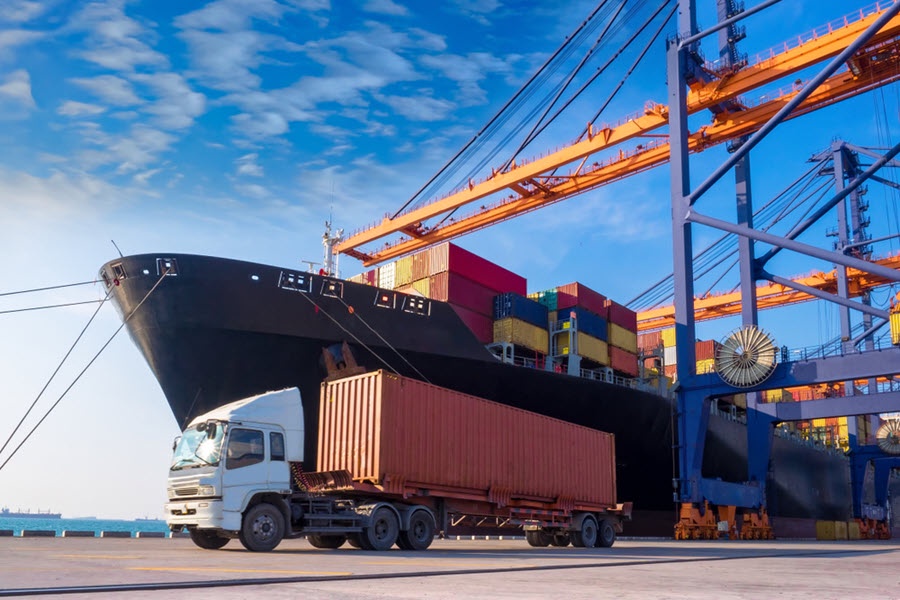Transportation Engineering plays a pivotal role in shaping our connected world, ensuring the seamless movement of people and goods. At the heart of this discipline lies the intricate dance of planning, design, and execution that transforms landscapes into efficient networks. One crucial aspect is Equipment Transportation. From heavy machinery to delicate instruments, the safe and efficient conveyance of equipment is a linchpin in various industries. In this Article , we delve into the multifaceted realm of Transportation Engineering, exploring its historical roots, core components, and the critical role it plays in facilitating the global exchange of resources.
Historical Perspective
The historical trajectory of Transportation Engineering weaves a tale of progress and innovation. From ancient pathways to modern highways, this discipline has evolved alongside societal needs. Ancient Romans laid the foundation with their extensive road network, while the Industrial Revolution propelled transportation infrastructure forward. Today, the historical perspective of Transportation Engineering underscores its continual adaptation to changing times and the persistent pursuit of safer, more efficient, and interconnected systems.
Key Components of Transportation Engineering
Transportation Engineering encompasses a tapestry of key components, each playing a vital role in crafting efficient and safe systems.
Transportation Planning
Assessing present and future needs.
Factoring in population growth and urban development.
Traffic Engineering
Analyzing traffic patterns.
Optimizing intersections for safety and efficiency.
Highway Engineering
Designing roads and pavements.
Ensuring safety and longevity of highways.
Bridge Engineering
Constructing bridges for seamless connectivity.
Overcoming geographical obstacles.
Public Transportation
Designing mass transit systems.
Enhancing accessibility and reducing congestion.
Airport and Railway Engineering
Planning and designing air and rail infrastructure.
Ensuring safe and efficient travel.
Intelligent Transportation Systems (ITS)
Implementing technology for traffic management.
Providing real-time information for travelers.
These components synergize to form a comprehensive field dedicated to fostering efficient, sustainable, and interconnected transportation systems.
Challenges and Solutions
Challenges and Solutions in Transportation Engineering
- Urbanization and Traffic Congestion
Challenge: Rapid urbanization leads to increased traffic congestion.
Solution: Implementing smart city planning, promoting public transit, and investing in alternative transportation modes like cycling and walking.
- Environmental Impact
Challenge: Transportation contributes to environmental degradation and climate change.
Solution: Embracing sustainable practices, promoting electric vehicles, and investing in eco-friendly infrastructure.
- Infrastructure Maintenance
Challenge: Aging infrastructure requires consistent maintenance and upgrades.
Solution: Adopting proactive maintenance strategies, utilizing advanced materials, and integrating smart technologies for predictive maintenance.
- Safety Concerns
Challenge: Traffic accidents and fatalities pose significant safety concerns.
Solution: Implementing advanced traffic management systems, improving road design for safety, and promoting awareness campaigns for responsible driving.
- Intermodal Connectivity
Challenge: Lack of seamless connectivity between different modes of transportation.
Solution: Integrating various transportation modes, improving transfer facilities, and enhancing coordination between transit agencies.
- Technological Integration
Challenge: Rapid technological advancements require continuous adaptation.
Solution: Embracing Intelligent Transportation Systems (ITS), incorporating real-time data, and investing in research and development for innovative solutions.
- Funding and Budget Constraints
Challenge: Limited budgets for large-scale transportation projects.
Solution: Exploring public-private partnerships, prioritizing high-impact projects, and advocating for increased investment in transportation infrastructure.
Addressing these challenges requires a holistic and collaborative approach, involving engineers, policymakers, and the public to ensure the development of resilient, sustainable, and efficient transportation systems for the future.
Future Trends and Innovations
The future of Transportation Engineering is a canvas painted with cutting-edge technologies and visionary innovations. As we look, the integration of smart technologies like Artificial Intelligence (AI) and the Internet of Things (IoT) will redefine traffic management, optimizing routes in real-time. Electric and autonomous vehicles will shape a greener and more efficient landscape, revolutionizing the way we move. Hyperloop and high-speed rail projects promise to transform long-distance travel. Additionally, the emergence of smart cities will foster seamless interconnectivity, enhancing overall transportation efficiency. The future of Transportation Engineering is not just about movement; it's about intelligent, sustainable, and interconnected mobility solutions.
Career Opportunities in Transportation Engineering
Transportation Engineering offers a diverse range of rewarding career opportunities for professionals passionate about shaping the future of transportation systems.
Transportation Planner
Engage in strategic planning for efficient transportation networks.
Assess current and future needs based on demographic and economic trends.
Traffic Engineer
Analyze traffic patterns and optimize signal timings for improved flow.
Implement safety measures and design effective intersection layouts.
Highway Engineer
Design and maintain highways, ensuring safety and longevity.
Develop innovative solutions for pavement design and construction.
Bridge Engineer
Specialize in the design and construction of bridges.
Overcome geographical challenges and contribute to vital infrastructure projects.
Public Transit Planner
Devise strategies for effective mass transit systems.
Work on projects aimed at enhancing accessibility and reducing congestion.
Airport/Railway Engineer
Plan and design air and rail infrastructure.
Ensure safe and efficient travel through airports or railways.
Intelligent Transportation Systems (ITS) Specialist
Implement technology solutions for traffic management.
Develop and maintain systems for real-time information and communication.
Environmental Transportation Engineer
Focus on sustainable transportation practices.
Work on projects that minimize the environmental impact of transportation.
Transportation Project Manager
Oversee the planning, design, and execution of transportation projects.
Coordinate with multidisciplinary teams to ensure project success.
Research and Development Specialist
Contribute to advancements in transportation technology and methodology.
Explore innovative solutions to address emerging challenges.
Consultant in Transportation Engineering
Provide expertise to public and private entities.
Offer specialized advice on transportation-related projects.
Government Transportation Analyst
Analyze transportation policies and regulations.
Contribute to the development of effective transportation strategies.
As the demand for efficient and sustainable transportation systems grows, these career paths offer professionals the opportunity to make a meaningful impact on the way people and goods move within our interconnected world.


No comments yet